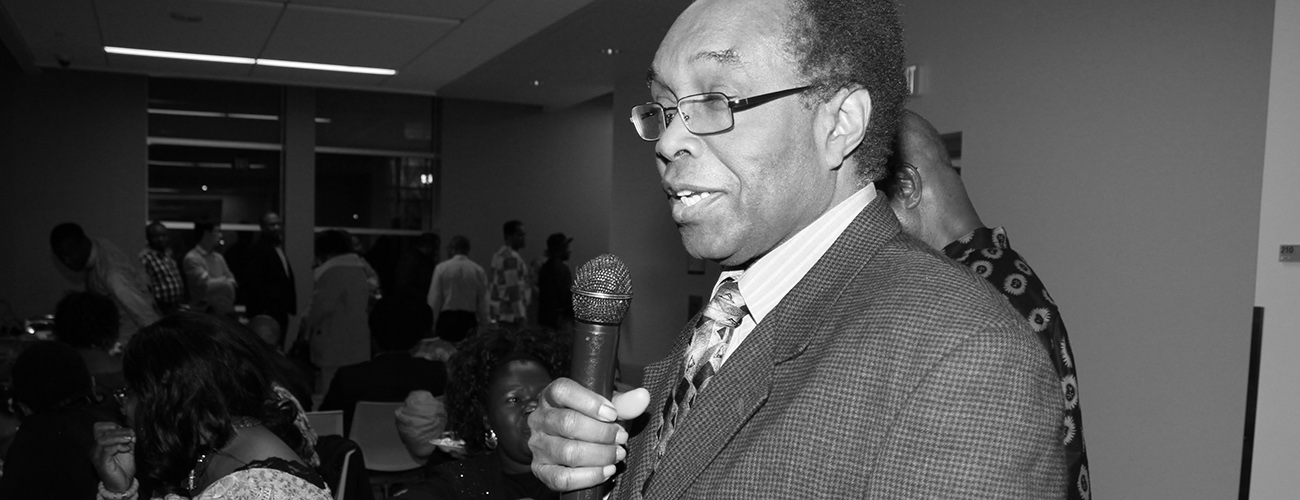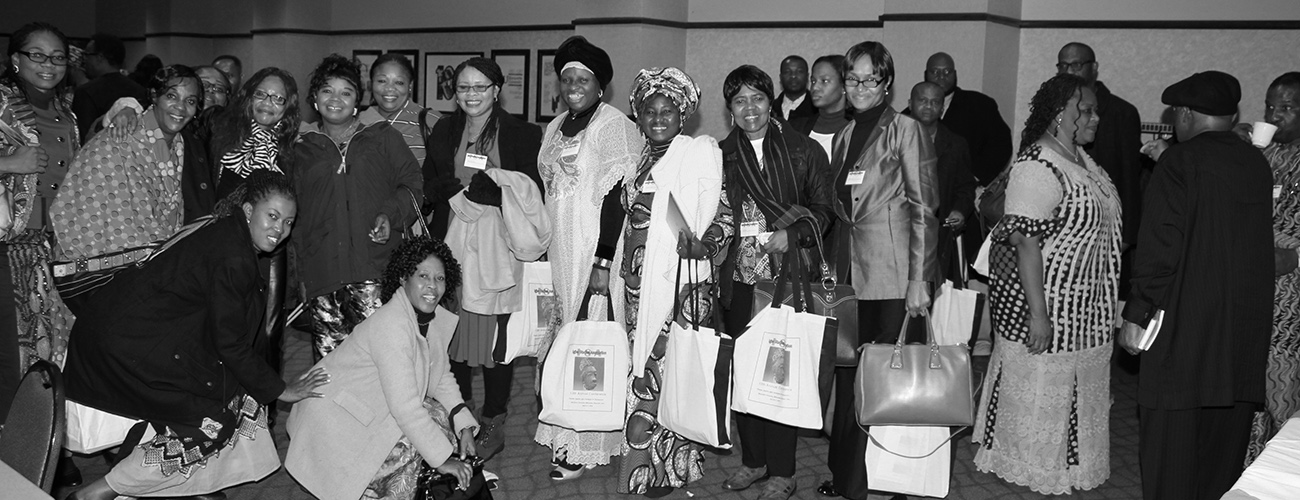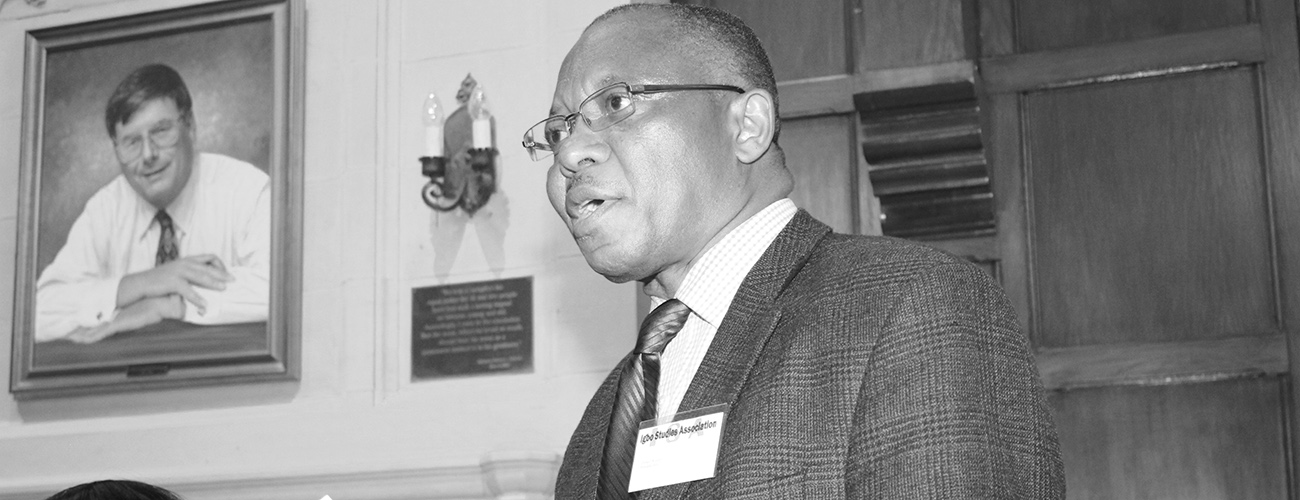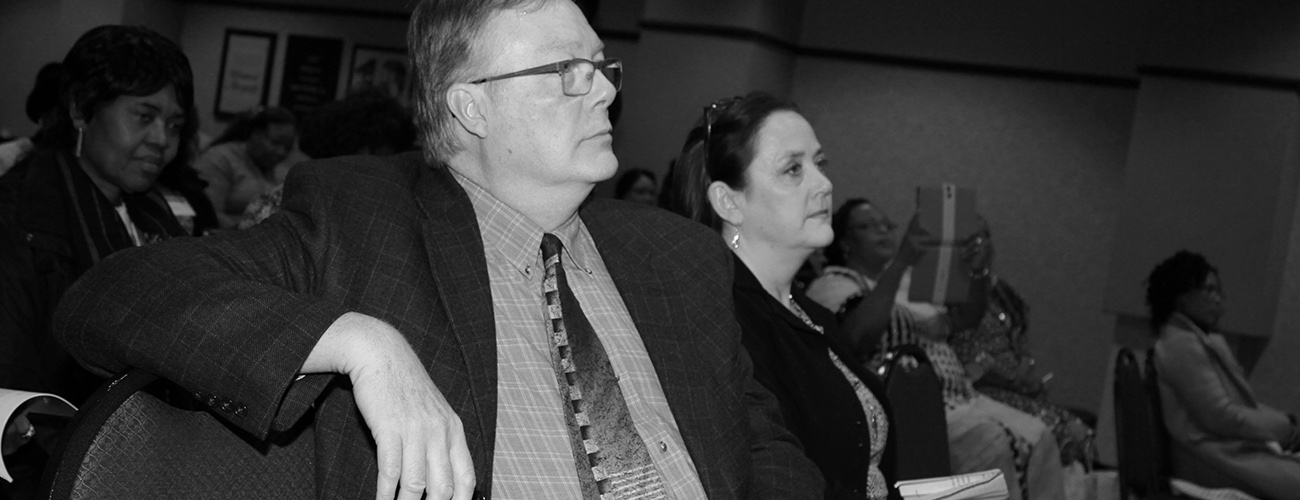NEWS & EVENTS
Communiqué of the 15th Annual Conference and Meeting of the Igbo Studies Association of USA, Greatwood Hotel, Owerri, Imo State, Nigeria, June 8-10, 2017
Released: June 22, 2017
The three-day 15th annual meeting and conference of the Igbo Studies Association at the Greatwood Hotel, Owerri, June 8-10, 2017 welcomed attendees and participants of all walks of life from Nigeria, Europe, United States of America and Canada, and included students, educators, activists, university academics, independent scholars, community leaders, entrepreneurs, nonprofit organizations, clergy and nuns, and statesmen and stateswomen.
The principal conference theme, “Ntọ-Ala Igbo: Retelling Our Story, Rekindling Our Values,” attracted over 200 paper presentations, artwork exhibitions, book and clothes selling, music and dance performances, not to mention several addresses and discussions on panels and roundtables that grappled with what it meant to be an Igbo person in this epoch. Issues of identity, politics, opportunity, culture, customs, science, technology, language, literature, economy, development, and security of life and property were deliberated upon, discussed and debated.
Three special guests, Dr. Chief Emmanuel Iwuanyanwu, Prince Dr. Philip Njemanze and Chancellor/Proprietor Dr. Gregory Ibe addressed on the first day of the conference the importance of science and technology, and investment and entrepreneurship to the economic development and sustainability of Igboland, while speaking on the topic of “Entrepreneurship and Investment in Igboland: New Strategies for Maximizing Opportunities.”
A special Executive plenary roundtable chaired by the sitting President, Dr. Ada Azodo, “Igbo Past, Present, and Future: Leadership and Development,” followed up with deliberations on the peculiar problems raised by Fulani herdsmen’s brazen grazing practices, the resulting conflict over land between indigenous populations and aspiring settlers, the potential peril to indigenous religious and customary institutions, as well as far-reaching immigration and emigration issues of this historic time as massive populations fleeing adverse climatic changes, environmental degradation, religious persecution, violence, ethnic squabbles, conflicts and wars alter the national and global political topographies and demographic landscapes.
Chief Dr. Ernest Nneji Emenyonu, Professor of the Humanities at the University of Michigan, Flint, USA, gave the Ihechukwu Madubuike Annual Keynote Lecture. During his hour-long address, “OUR IDENTITY, OUR DESTINY: Who Do People Say We ARE…and?,” the eminent Igbo scholar enjoined all and sundry in Igboland in particular and Nigeria in general to endeavor to live up to good moral turpitude, in work and play, in private and public spheres of life, and at the lowest and highest echelons of the community.
The President’s State of the Association Address focused on the challenges, joys and hopes of the Association. Challenges of the changing times included dilemma about the right decision to make in the face of the unprecedented influx of immigrants into Igbo heartland. Joys included the growing strength in numbers of the Association, a safe and sound treasury, visibility on the Web and through the ISA Newsletter and Igbo Studies Review publication organs, outreach to other Igbo Studies organizations, individuals and institutions of repute. The Association’s hopes for the future were to award the Don Ohadike Book Prize, to found a secretariat and a stable home in the diaspora, and to activate a sponsorship campaign for the Igbo Studies Endowment Fund, a venture already studied by an Ad-Hoc Committee and approved in principle since 2009.
Conference presentations, addresses, discussions, and debates brought down to a short list include the following:
-
Igbo values, identity, language, culture and customs are under siege, with the current incursions into Igbo heartland by populations on the move and looking for new pieces of arable and grazing land on which to settle.
-
There is dire need for vigilance and fortitude, in order to avert the possibility of being overrun and overwhelmed on one’s own turf.
-
The current times are complex and reiterate the importance of holding on firmly to Igbo traditional customs and values in birth, marriage and death rituals and ceremonies, in order to safeguard the Igbo unique identity.
-
The recent quit notice by the Coalition of Arewa Youth to Igbo people to vacate the North and return to their homeland, and to the Northerners likewise to return to the North from the South East, by October 1, 2017, was seen as a piece of hate speech, despicable and divisive that could exacerbate political and social instability in Nigeria and lead to the problem of internally displaced persons once again after the horrific civil war.
-
Separatist calls by sections of Nigeria were seen as serious and legitimate forms of affirmation of human rights, which call for Federal Government intervention to reassure its citizens of safety of life and property wherever they reside in the country.
-
Nigerian leadership was enjoined to look for ways and means to resolve fairly the ethnic conflicts that continue to plague the country, since the amalgamation of the North and South in 1914 by Lord Lugard.
-
The Igbo people remain politically and economically marginalized, since the end of the Nigeria-Biafra Civil War, and that was seen as untenable and so must end.
-
Land was seen as a potential area of conflict between their owners and the settlers, requiring constitutional intervention at the Federal, State and local government levels to resolve the problems.
-
The imperative of economic development of Igboland for a brighter future was recognized and impediments that could dampen hopes in and aspirations towards entrepreneurship, business and economic development were to be eschewed.
-
Loss of lives of the Igbo youth seeking their identity and future in violent clashes with law enforcement officers was condemned.
-
Igbo leaders were urged to guide the youth to find alternative and safer ways to air their feelings of desperation and protest.
-
The status of Igbo women was seen as a measure of the level of development of Igboland. Hence women, seen as primary educators of the future generations of the land, must be accorded respect, love and human dignity at all times.
-
Gratitude went to individuals too many to mention both within and outside the Igbo Studies Association for all their contributions towards a successful conference at Owerri
-
Immense gratitude was also conveyed to organizations and institutions, such as the Federal University, Ndufu-Alike, Ikwo, Abakaliki, and the African Studies Association (USA) to which Igbo Studies Association is affiliated, for monetary donations and invaluable financial support of the Owerri Summit.
Finally, the Igbo Studies Association went above and beyond the call of the principal 2017 conference theme to reaffirm key objectives and goals of its Mission Statement, as follows:
-
Safeguard Igbo language, literature, culture, customs and mores.
-
Think science, technology and entrepreneurship for future economic development of Igbo society, without neglecting the arts.
-
Critically access all issues in conflict resolution, in order to ensure upright morality.
-
Rekindle education of the youth, in order to guide them aright for posterity.
-
Eschew unfair dealings in all relationships with men, women, and the youth.
The next, the 16th Igbo Studies Association Annual Conference and Meeting will hold at the Dominican University, River Forest, Illinois, USA, May 9-12, 2018.
SIGNED: Conference Planning Committee:
Dr. Ada U. Azodo
Dr. Uchenna M. Nzewi
Dr. Ogechi E. Anyanwu
Dr. Chima J. Korieh
Dr. Lucy Apakama
Dr. Francis N. Ikwuegbu
Dr. Baldwin C. Anyasodo
Dr. Douglas B. Chambers
Dr. Apollos O. Nwauwa
Dr. Bellarmine A. Ezuma
Dr. Oby C. Okonkwor
Dr. Ikenna O. Aghanya
Chijioke Azuawusiefe
Dr. Ijeoma Azuoma




